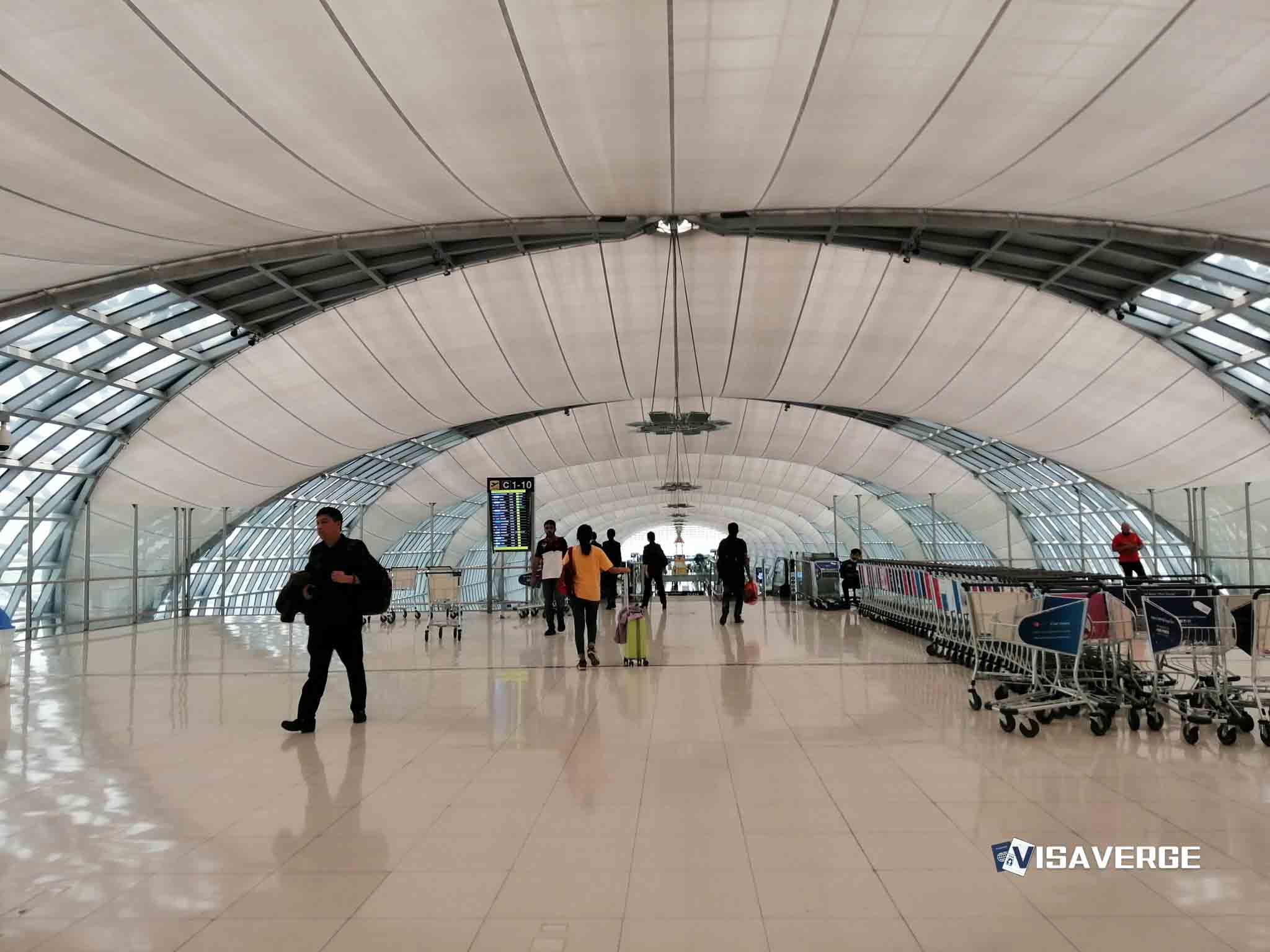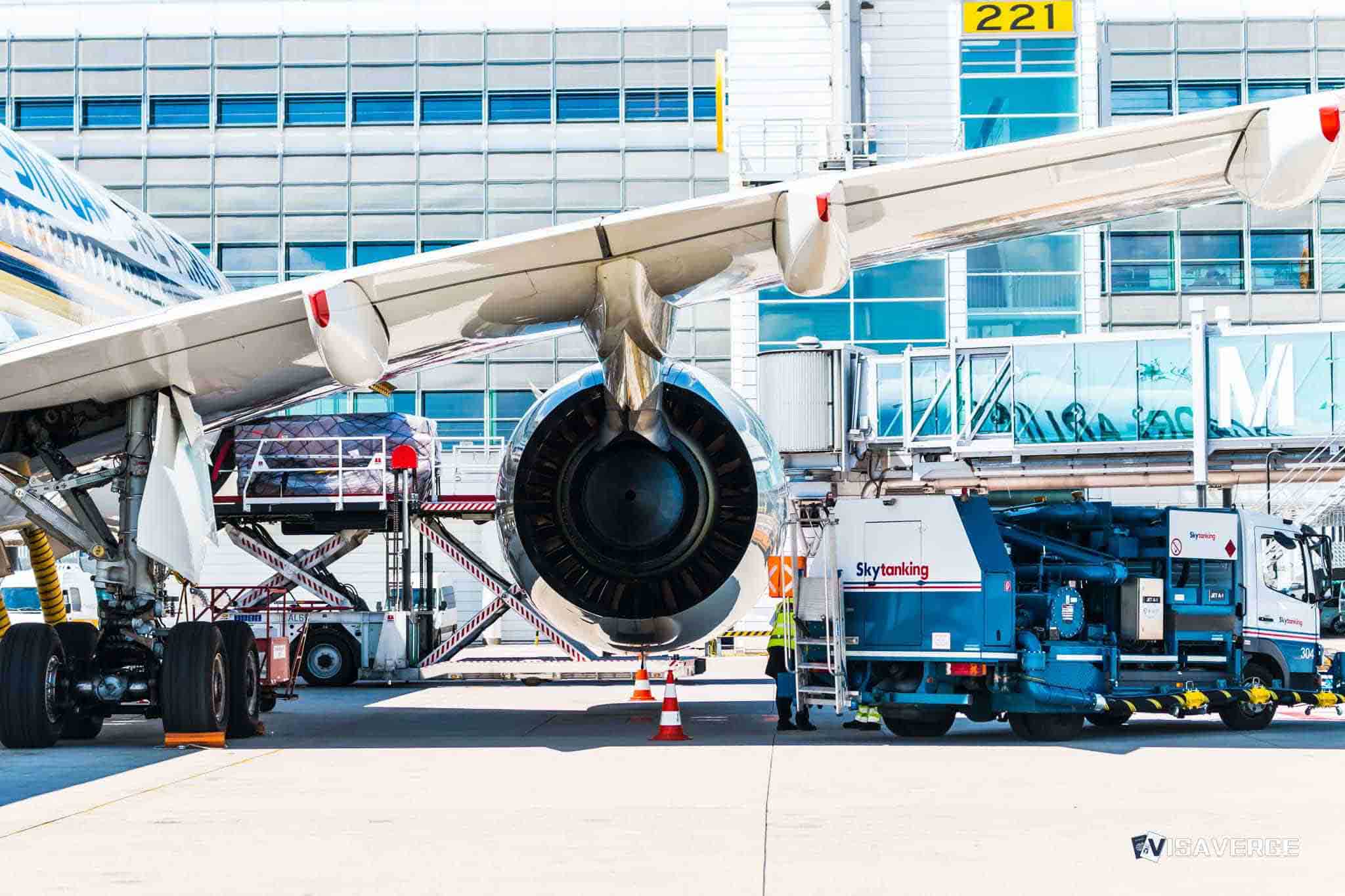Key Takeaways
• Idaho offers refugee support including Global Talent, Global Gardens, and medical assistance with lowered income thresholds in 2025.
• Eligibility requires official refugee, asylee, SIV status, and resettlement in Idaho; temporary visa holders are ineligible.
• Welcome Corps enables private sponsorship; NGOs like IRC provide legal, language, housing, and mental health services.
If you are a refugee or asylum seeker considering Idaho in 2025, you’ll find a wide range of state-level support and resources designed to help you settle, build a new life, and become part of the community. Idaho’s approach is built on decades of experience, strong partnerships, and a commitment to making sure newcomers have the tools they need to succeed. This guide will help you quickly figure out if you qualify for these programs, what you need to do, what might stop you from getting help, and what to do if you don’t qualify right now.
Eligibility for Idaho’s Refugee and Asylum Seeker Support

To receive most state-level support in Idaho, you must meet certain criteria. Here’s a clear breakdown:
Who Qualifies for Idaho’s Refugee Support Programs?
You are eligible if:
– You have been granted refugee status by the United States 🇺🇸 government.
– You are an approved asylee (someone who has been granted asylum in the United States 🇺🇸).
– You are a Special Immigrant Visa (SIV) holder (for example, from Afghanistan or Iraq).
– You are a Cuban or Haitian entrant, or a victim of trafficking with proper documentation.
You may also qualify if:
– You are a family member of someone with one of the above statuses and are included in their resettlement case.
You are NOT eligible if:
– You are still waiting for a decision on your asylum application (unless you are covered by certain humanitarian parole programs).
– You are in the United States 🇺🇸 on a temporary visa (like a student or tourist visa).
– You do not have any legal immigration status.
Example:
Fatima, who arrived in Idaho as a refugee from Syria with her family, is eligible for all state-level refugee programs. However, her cousin, who is visiting on a tourist visa, is not eligible.
Key Programs and Services: Detailed Requirements and How They Work
Idaho’s support for refugees and asylees is coordinated mainly through the Idaho Office for Refugees (IOR). This agency works with local partners and offers several specialized programs. Here’s what you need to know about each:
Idaho Office for Refugees (IOR): Central Hub for Support
To qualify for IOR programs, you must:
– Be a refugee, asylee, SIV holder, or other eligible entrant as listed above.
– Be resettled in Idaho, usually through a recognized resettlement agency in Boise or Twin Falls.
Key Programs:
- Global Talent:
- Who qualifies: Refugees and asylees with professional backgrounds (such as engineers, doctors, teachers) who want to return to their careers in Idaho.
- Requirements: Proof of prior education or work experience in your field, willingness to participate in training or credential evaluation.
- Example: Thy Tran, an electrical engineer from Vietnam, used Global Talent to get his credentials recognized and now works at Micron in Boise.
- Disqualifying factors: No prior professional experience or unwillingness to participate in training.
- Global Gardens:
- Who qualifies: Refugees interested in farming or gardening, regardless of prior experience.
- Requirements: Willingness to learn and participate in community farming activities.
- Example: A Somali family joins Global Gardens to grow vegetables, sell them at local markets, and earn extra income.
- Disqualifying factors: Lack of interest in agriculture or inability to participate regularly.
- English Language Center:
- Who qualifies: Newly arrived refugees and asylees needing English instruction.
- Requirements: Enrollment through IOR or a partner agency.
- Example: A Congolese refugee attends classes to improve English for work and daily life.
- Disqualifying factors: Not being a refugee or asylee, or already fluent in English.
- Refugee Speakers Bureau:
- Who qualifies: Refugees interested in sharing their stories and helping others understand their experiences.
- Requirements: Willingness to speak publicly and participate in community events.
- Disqualifying factors: Not comfortable with public speaking or not a refugee/asylee.
- Afghan Cultural Center:
- Who qualifies: Afghan refugees and their families.
- Requirements: Afghan background and interest in cultural activities.
- Disqualifying factors: Not of Afghan origin.
- Idaho Community Advisor Network (I-CAN):
- Who qualifies: New refugee families needing mentorship.
- Requirements: Willingness to work with a mentor.
- Disqualifying factors: Not a refugee or not interested in mentorship.
How to Apply:
Contact the Idaho Office for Refugees directly or ask your resettlement agency for help enrolling in these programs. The IOR website provides contact details and application steps: Idaho Office for Refugees.
Medical Assistance: New Rules in 2025
Idaho has made it easier for refugees to get medical help. In 2025, House Bill No. 199 was introduced to lower the income threshold for refugees to qualify for state medical assistance.
Eligibility for Medical Assistance:
– You must be a refugee, asylee, SIV holder, or other eligible entrant.
– Your household income must fall below the new, lower threshold set by the state.
– You must apply through the Idaho Department of Health and Welfare.
Disqualifying factors:
– Income above the set threshold.
– Not having eligible immigration status.
Example:
A family of four from Afghanistan with a low income can now get state medical help thanks to the new law, even if they didn’t qualify before.
How to Apply:
Visit the Idaho Department of Health and Welfare for application forms and instructions.
Support from Non-Governmental Organizations (NGOs)
The International Rescue Committee (IRC) in Boise is a major partner in helping refugees settle and thrive. They provide:
- Airport welcome and transportation
- Help finding and furnishing a home
- Cash assistance for basic needs
- Access to healthcare and healthy food
- English and adult education classes (including job readiness and digital skills)
- Help enrolling children in school
- Trauma-informed mental health care
- Legal help for immigration and asylum cases
Eligibility:
– Must be a refugee, asylee, or SIV holder resettled in Idaho.
– Must be referred by IOR or another partner agency.
Disqualifying factors:
– Not having eligible status or not being resettled through official channels.
Example:
A family from the Democratic Republic of Congo is welcomed at the airport, receives help setting up their new apartment, and gets connected to English classes and job training.
Private Sponsorship: The Welcome Corps Program
Since 2023, the Welcome Corps program lets private citizens and organizations sponsor refugees directly, including in Idaho. This means you might be able to come to Idaho if you have a sponsor group willing to help you.
Eligibility:
– You must be approved for resettlement through the U.S. Refugee Admissions Program (USRAP).
– You must have a private sponsor group in Idaho.
Disqualifying factors:
– No sponsor group available.
– Not approved for USRAP.
How to Improve Your Chances:
– If you have friends, family, or community groups in Idaho, ask if they can form a sponsor group.
– Learn more about the Welcome Corps at the official Welcome Corps website.
Economic and Social Integration: How Refugees Succeed in Idaho
Idaho’s programs are designed to help refugees become self-sufficient and active members of society. Here’s what you can expect:
- Job Placement and Training:
Programs like Global Talent help skilled refugees return to their professions. Others get help finding entry-level jobs, especially in agriculture and technology. -
Entrepreneurship:
Global Gardens supports refugees who want to start small farms or sell produce, helping them earn income and build community ties. -
Education:
English classes and adult education help refugees learn the language and understand American culture. -
Community Engagement:
Programs like the Refugee Speakers Bureau and Afghan Cultural Center help refugees share their stories and build bridges with local residents.
Example:
A refugee from Iraq uses Global Talent to get his teaching credentials recognized, finds a job in a local school, and joins the Refugee Speakers Bureau to talk about his journey.
Disqualifying Factors: Who Might Not Qualify and Why
You may not qualify for Idaho’s refugee support programs if:
- You do not have official refugee, asylee, SIV, or similar status.
- You are in the United States 🇺🇸 on a temporary visa or without legal status.
- Your income is too high for certain benefits (like medical assistance).
- You are not resettled in Idaho through an official agency.
What to Do If You Don’t Qualify:
– Seek legal advice to see if you can change your status or apply for asylum.
– Look for community organizations that offer help to immigrants regardless of status.
– Consider private sponsorship through the Welcome Corps if you have connections in Idaho.
Alternative Options and How to Improve Your Chances
If you don’t qualify for state-level refugee programs, here are some steps you can take:
- Apply for Asylum:
If you fear returning to your home country, you may be able to apply for asylum. Learn more and find the official application form here. -
Seek Legal Help:
Many NGOs, including the IRC, offer free or low-cost legal services to help you understand your options. -
Community Support:
Some churches, charities, and local groups offer help with food, housing, and education even if you don’t have official refugee status. -
Improve Your English:
Taking English classes, even outside official programs, can help you find work and connect with the community. -
Build a Support Network:
Connect with other immigrants and refugees in Idaho. They can offer advice, friendship, and practical help.
Key Stakeholders and How to Contact Them
If you need help or want to apply for programs, these are your main points of contact:
- Idaho Office for Refugees:
The main agency for refugee resettlement and support. Visit Idaho Office for Refugees for contact details. -
International Rescue Committee (IRC) Boise:
Offers a wide range of services for refugees and asylees. Find more at IRC Boise. -
Idaho Department of Health and Welfare:
Handles medical assistance and other benefits. Visit Idaho Department of Health and Welfare. -
Local Resettlement Agencies:
Located in Boise and Twin Falls, these agencies help with housing, jobs, and more. -
Welcome Corps:
For private sponsorship opportunities, see Welcome Corps.
Future Outlook: What to Expect in Idaho
Idaho’s refugee programs are strong, but they depend on national policies and funding. The state is working to make medical help easier to get and is expanding private sponsorship options. Community support remains high, and programs like Global Talent and Global Gardens are helping more refugees find jobs and start businesses.
Challenges:
– Changes in national refugee policy could affect how many people Idaho can resettle.
– Funding for some programs may change from year to year.
– Some refugees may face barriers like language, trauma, or lack of recognition for foreign credentials.
How to Prepare:
– Stay informed about changes in refugee policy.
– Keep your documents and records up to date.
– Take advantage of all available programs, especially those offered by the Idaho Office for Refugees.
Summary and Action Steps
Idaho in 2025 offers a welcoming environment and strong support for refugees and asylum seekers. If you have official refugee, asylee, or SIV status and are resettled in Idaho, you can access programs like Global Talent, Global Gardens, English classes, and medical assistance. The Idaho Office for Refugees is your main point of contact, and organizations like the IRC provide extra help with housing, jobs, and legal issues.
If you don’t qualify right now, look into private sponsorship, legal help, or community resources. Improving your English, building a support network, and staying informed about policy changes can help you succeed.
For the latest information and direct help, visit the Idaho Office for Refugees. According to analysis by VisaVerge.com, Idaho’s approach stands out for its strong partnerships and focus on helping refugees become self-sufficient and active members of the community.
By understanding the eligibility rules, using available resources, and staying connected with support agencies, you can make the most of Idaho’s welcoming programs and build a brighter future for yourself and your family.
Learn Today
Refugee → A person granted protection after fleeing persecution or danger in their home country.
Asylee → An individual granted asylum status legally allowing residence in the U.S. due to persecution fears.
Special Immigrant Visa (SIV) → A visa for certain groups like Afghan or Iraqi nationals to safely resettle in the U.S.
House Bill No. 199 → 2025 Idaho law lowering income eligibility for state medical assistance for refugees and asylees.
Welcome Corps → A U.S. federal program enabling private citizens to sponsor refugee resettlement directly.
This Article in a Nutshell
In 2025, Idaho provides comprehensive refugee support through programs like Global Talent and Global Gardens, plus improved medical assistance, helping newcomers integrate and succeed within local communities with strong state and NGO collaboration.
— By VisaVerge.com








